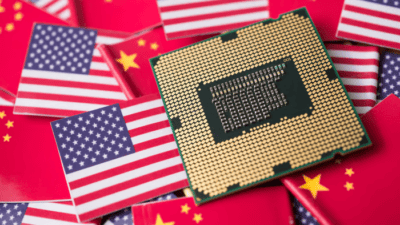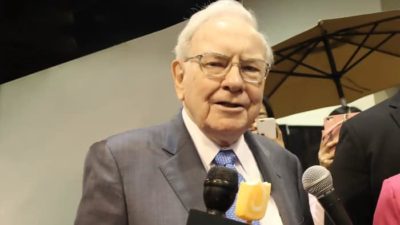This article was originally published on Fool.com. All figures quoted in US dollars unless otherwise stated.
This article was originally published on Fool.com. All figures quoted in US dollars unless otherwise stated.
There's little question that Apple (NASDAQ: AAPL) has been a long-term winner for shareholders. Even investors who bought the stock over the past decade have been handsomely rewarded, as Apple has climbed more than 800% (as of this writing), eclipsing the 180% gains of the S&P 500.
Yet, over the past year or so, Apple shareholders have had a crisis of confidence. Investors have watched as many of the company's rivals and peers in the artificial intelligence (AI) space have notched stellar gains, while Apple stock has failed to keep pace with the broader index.
However, the iPhone maker is looking to change all that. Apple recently announced plans for a special event and product reveal on September 9, which could be the spark that sends the stock higher. Should investors buy Apple before this high-profile event? Let's see what the evidence suggests.
A perfect storm
Before answering the quintessential investing question, it's important to look at the issues that caused Apple investors to lose faith.
The most obvious problem for Apple has been the company's financial results, which have been in the doldrums over the past couple of years. For the nine months ended Jun. 29, Apple's revenue grew less than 1% year over year, while iPhone sales fell 1%. The prior year was equally challenging, as fiscal 2023 revenue tumbled 3%.
It's important to put those results in the context of the broader economic backdrop. Inflation has hovered near 20-year highs and consumers were forced to make tough choices at the gas pump and in the grocery aisle. Given the economic challenges, it isn't surprising that consumers would opt to hang on to their existing iPhones a bit longer rather than trading up to the newest model.
Another issue that has pressured Apple stock is the monumental sale by longtime shareholder and advocate Warren Buffett. The famed investor and Berkshire Hathaway CEO has sold Apple shares for three consecutive quarters, unloading roughly 56% of his shares. This from the guy who just last year said, "It just happens to be a better business than any we own." Buffett suggested the sales were made for tax reasons, but that didn't stop fair-weather investors from heading for the exits.
This combination of factors has weighed on Apple stock, but that could be about to change.
"It's Glowtime"
Just this week, Apple announced the date for its next big product reveal, which is scheduled for September 9 at 10:00 a.m. PT. The invitations sent out by the company said, "It's Glowtime." Most industry commentators expect Apple to introduce the next generation of its flagship device -- the iPhone 16 -- at the event.
The image on the invitations appears to be a stylized Apple logo combined with the icon for Siri, Apple's digital assistant. The design has stoked theories about what's in store, and expectations are high that the update will include a much-needed upgrade for Siri. The company is also expected to provide details for Apple Intelligence, the company's foray into generative AI.
This could just provide the catalyst for Apple's next leg higher.
An Apple recovery?
I'm not the only one that's bullish about the potential for a vigorous rebound in Apple sales.
Daniel Loeb, CEO of hedge fund Third Point, recently added a sizable Apple stake to his portfolio. The billionaire accumulated nearly 2 million shares of Apple stock in the second quarter, in a stake worth roughly $443 million (as of this writing) and making up nearly 5% of his portfolio. Loeb discounted investor concerns that Apple would "be an AI loser," suggesting that Apple Intelligence would fuel "meaningful demand" from the company's installed base, driving "a step-change improvement in Apple's revenue and earnings over the next few years."
Veteran tech analyst Dan Ives of Wedbush is equally bullish. As a result of recent economic headwinds, the analyst estimates that "roughly 300 million iPhones globally have not upgraded in over 4 years." Ives goes even further, positing that "Apple could sell north of 240 million iPhones in fiscal 2025," part of an "AI-driven upgrade cycle" fueled by pent-up demand. With an average selling price of more than $900, that would represent sales of more than $220 billion in iPhone sales alone and an increase of roughly 10% compared to this year's trajectory. Backing up his call, Ives has an outperform (buy) rating and a $285 price target, which represents potential upside for investors of 25% compared to Monday's closing price.
Should investors buy before September 9?
I generally advise against investors making date-driven decisions but rather focus on the preponderance of the evidence to decide whether or not to buy a given stock -- and Apple is no different.
Apple is the most popular smartphone in the world, with its devices representing the top seven best-selling smartphones in 2023, according to Counterpoint Research. Apple has more than 2 billion active devices worldwide, and it's estimated that roughly 1.4 billion of those are iPhones.
The potential for robust iPhone sales is clear, as are the accompanying sales of apps, services, and ancillary products. The economic headwinds of the past few years are beginning to ease, which suggests consumers will likely be more willing to upgrade to the newest iPhone. Furthermore, the new AI-driven features represent a compelling incentive for consumers to upgrade.
Apple is currently selling for a slight premium, at 34 times earnings, which is justified given its long-term track record of growth. Furthermore, the trifecta of new iPhone features, a revamp for Siri, and new AI-powered functionality could be just the catalyst Apple needs to spark its next big upgrade cycle and the stock's next move higher.
All this suggests that Apple stock is a buy.
This article was originally published on Fool.com. All figures quoted in US dollars unless otherwise stated.
This article was originally published on Fool.com. All figures quoted in US dollars unless otherwise stated.









